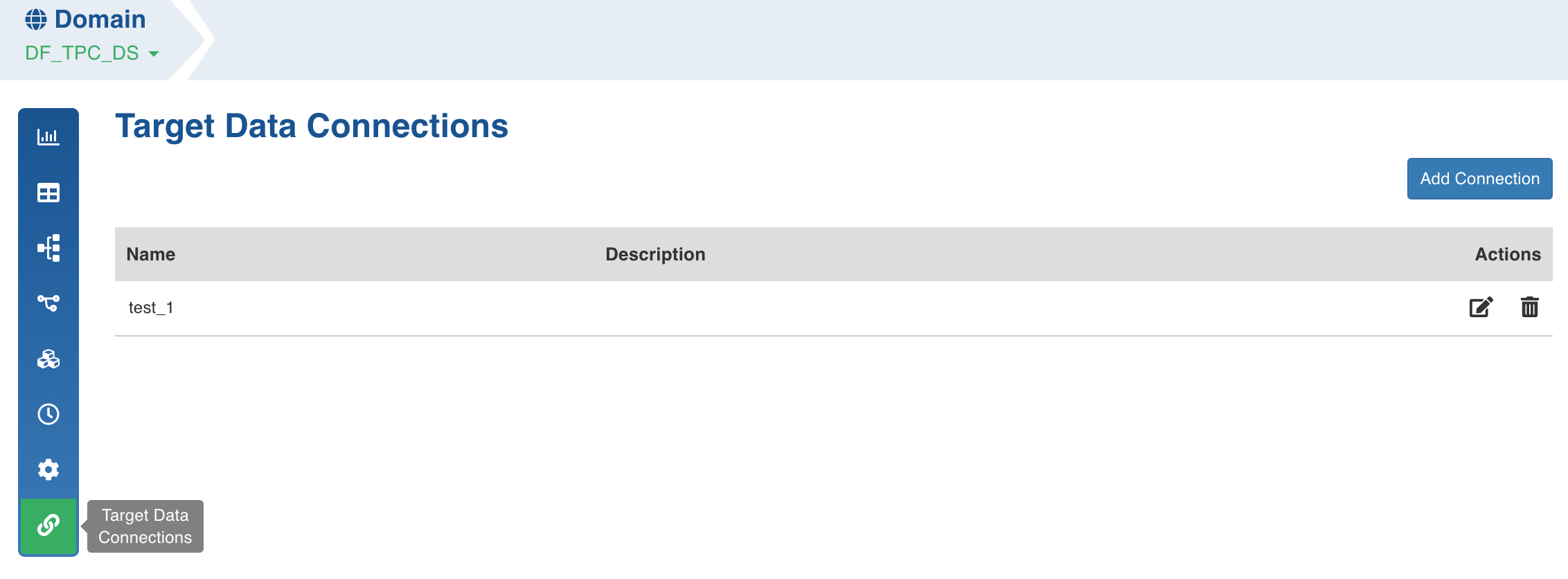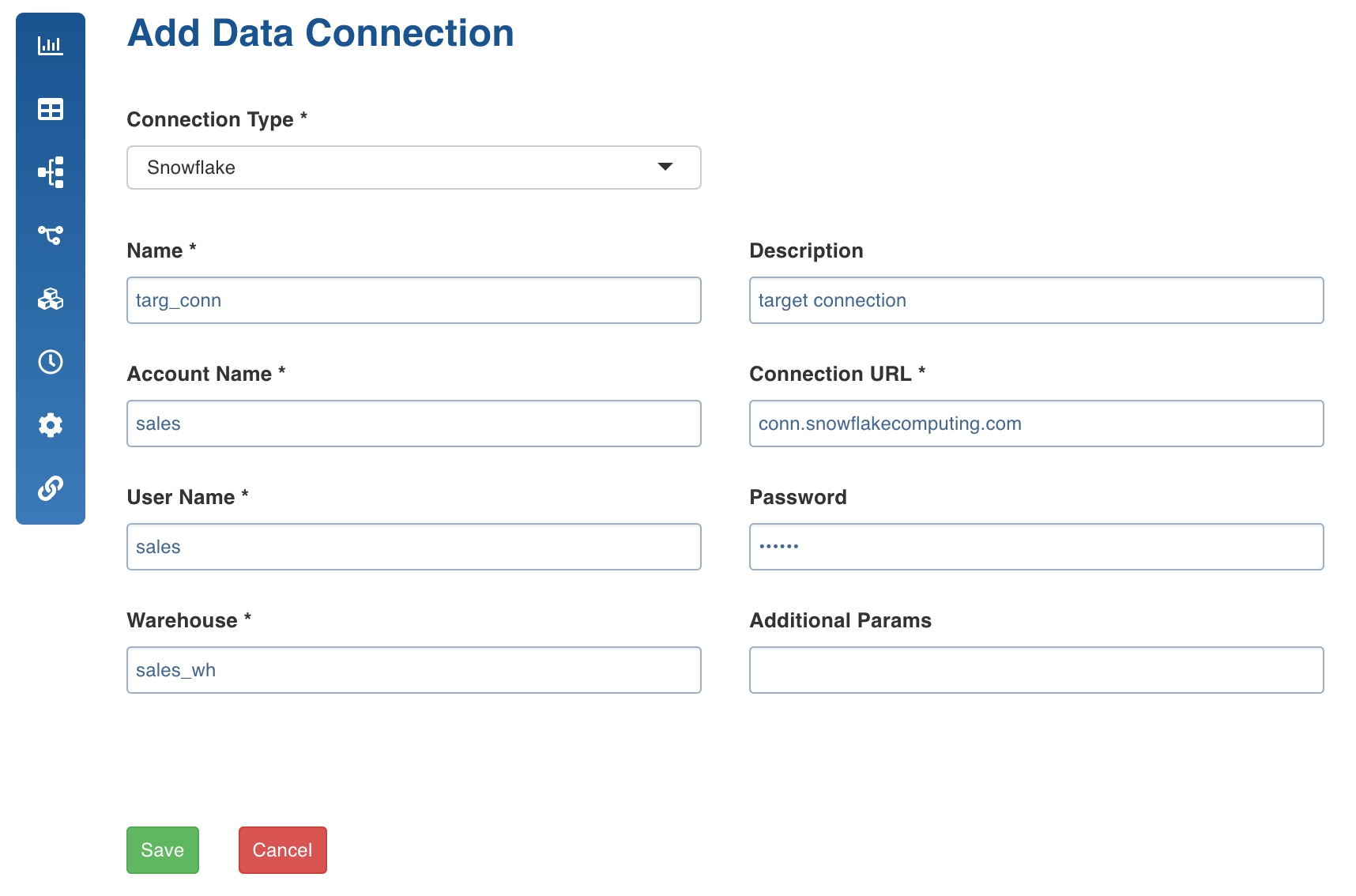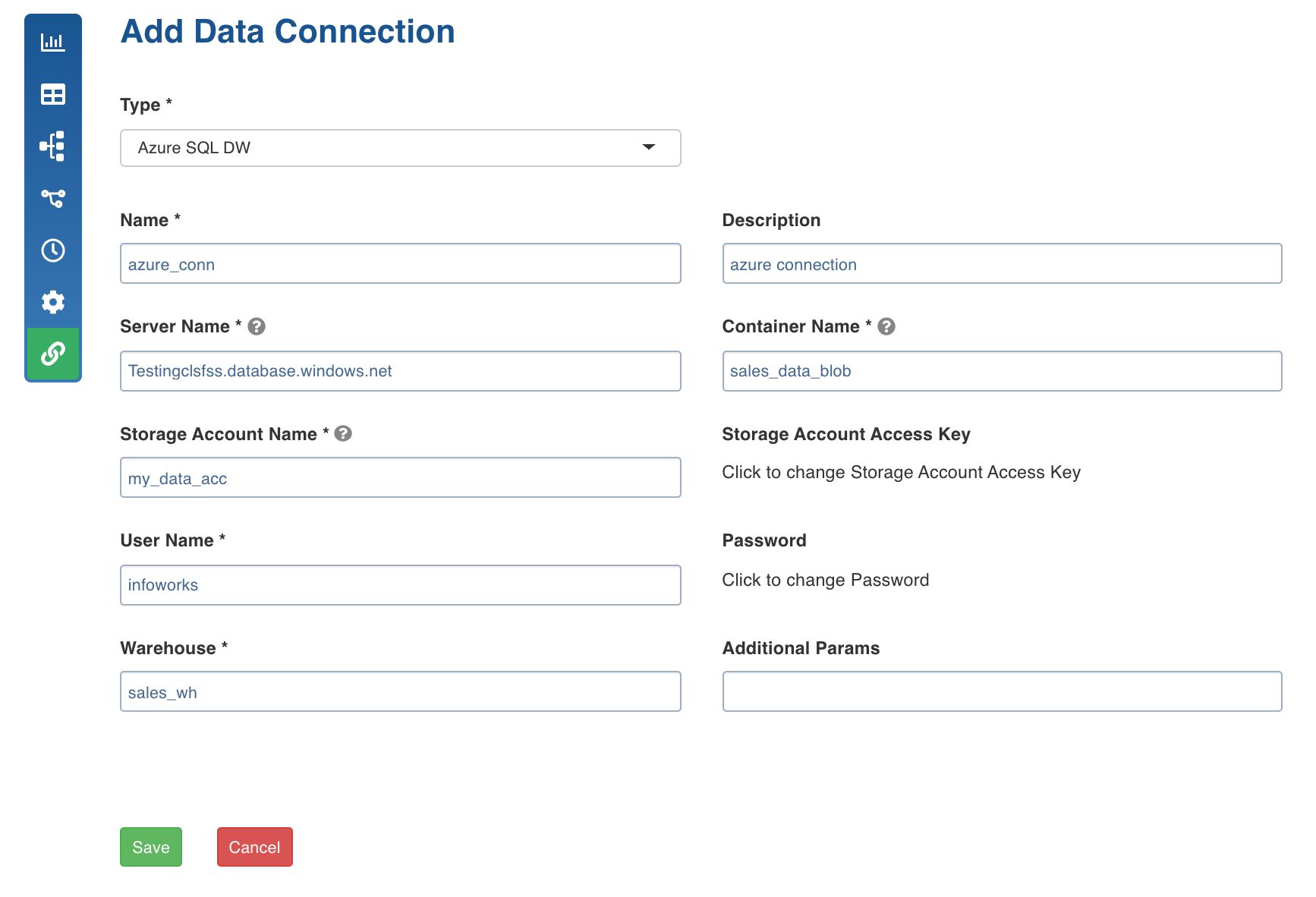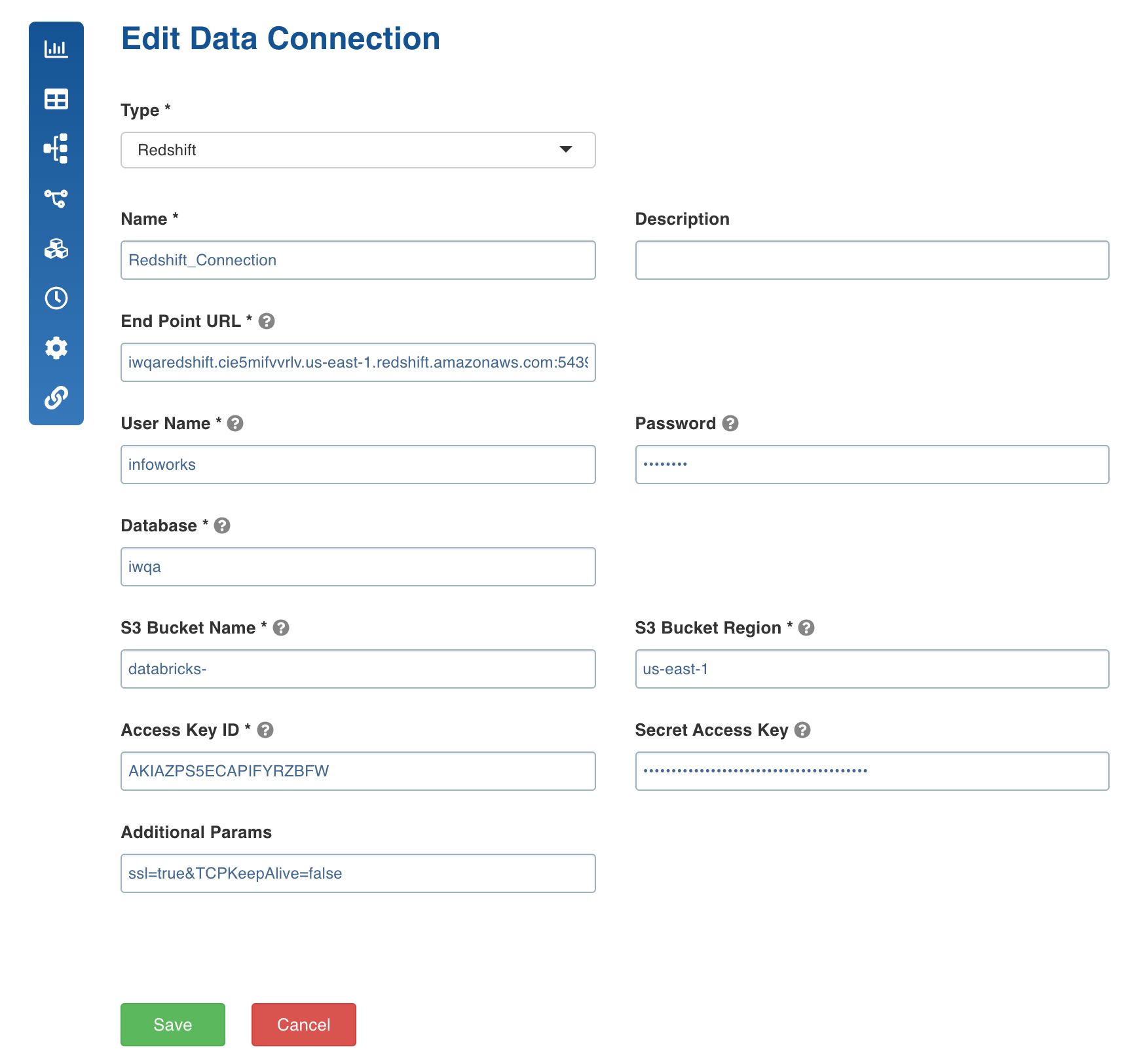Title
Create new category
Edit page index title
Edit category
Edit link
Target Data Connections
Target data connections feature is used as a template to configure target connections that can be used in pipeline targets within the domain.
Following are the steps to set the target data connections:
- Navigate to the required domain and click the Target Data Connections icon.
- Click Add Connection.

- Enter the connection details and click Save. The connection details for snowflake is explained below.
Snowflake Data Connection
Following are the snowflake connection details:
- Connection Type: Type of connection. Select Snowflake.
- Name: Name for the target data connection. For example, tar_con.
NOTE: The connection name must be unique across the specific domain.
- Description: Description for the target data connection.
- Account Name: Snowflake Account Name. For example, example_sales.
NOTE: The account name can be with or without region.
- Connection URL: Connection URL to connect to snowflake. For example, name.snowflakecomputing.com.
NOTE: The connection URL must not include https://.
- User Name: Username of the snowflake account. For example, mark@example.com.
- Password: Password of the snowflake account. For example, 123456.
- Warehouse: Snowflake warehouse name. For example, sales.
- Additional Params: Optional JDBC parameters.

Azure SQL DW Data Connection
Following are the Azure SQL DW connection details:
- Connection Type: Type of connection. Select AZURE SQL DW.
- Name: Name for the target data connection. For example, azure_con.
NOTE: The connection name must be unique across the specific domain.
- Description: Description for the target data connection.
- Server Name: Specify a fully qualified server Name. For example, Testingclsfss.database.windows.net
- User Name: Username of the Azure SQL DW account. For example, infoworks.
- Password: Password of the Azure SQL DW account. For example, Info**123&dw.
- Warehouse: Azure SQL DW warehouse name. For example, sales_wh.
- Additional Params: Optional JDBC parameters. The value must end with a semicolon. For example, encrypt=true;

Redshift Target Data Connection
Following are the Redshift connection details:
- Type: The type of connection. Select Redshift.
- Name: The name for the target data connection. For example, tar_con.
NOTE: The connection name must be unique across the specific domain.
- Description: The description for the target data connection.
- Endpoint URL: The endpoint URL of the Redshift cluster in the format,
: . For example, iwdbredshift.ciasdssdifvrlv.us-east-1.redshift.amazonaws.com:5439 - User Name: The user name for the Redshift account. For example, redshift_421
- Password: The password for the Redshift account. For example, 123456.
- Database: The name of the database created for the cluster.
- S3 Bucket Name: The name of the S3 Bucket. For example, _bucket-new. _This S3 bucket will be used as a tempdir for redshift.
- S3 Bucket Region: The S3 bucket Region. For example, us-east-1.
- Access Key ID: The access key ID of IAM user.
- Secret Access Key: The Secret Access Key of IAM User.
- Additional Params: The optional JDBC parameters. For example, ssl=true&TCPKeepAlive=false

For more details, refer to our Knowledge Base and Best Practices!
For help, contact our support team!
(C) 2015-2022 Infoworks.io, Inc. and Confidential